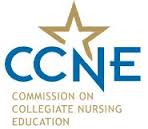Why Nursing?
Nursing’s contribution to the well being of society is crucial, and the demand for baccalaureate-prepared nurses is growing worldwide. Nurses prepared to help others achieve good health outcomes are in constant demand. Nursing plays an ever-expanding role as changes occur in care delivery, and offers the well-educated individual opportunities for a rewarding professional career. Nursing provides professional mobility, as well as a wide choice of work environments and types of service.
Professional nursing is both science and art, requiring intellectual discipline, psychomotor skills, personal integrity, accountability and emotional maturity. As a science, nursing emphasizes the ability to define and address problems through evidence-based practice and critical inquiry. As a science and an art, nursing is a care-giving process based in scientific knowledge and technology, shaped by developments in health care delivery systems, and the values, needs and lifestyles of the people it serves. The bachelor of science in nursing (BSN) prepares the individual to sit for registered nurse licensure for generalist professional roles, and enables the successful graduate to enter graduate study for specialization.
Why Nursing at PLU?
The School of Nursing at Pacific Lutheran University is a professional school that combines nursing science with a strong foundation in the natural sciences and liberal arts. This selective program prepares undergraduate students as skilled generalists so they may later seek advanced practice in specific specialties. The program provides an excellent foundation for clinical practice, as well as for preparing qualified graduates to enter the best graduate programs in nursing.
The school exemplifies the university’s mission of “educating for lives of thoughtful inquiry, service, leadership and care” in an environment that encourages lifelong learning, diversity and spirituality as vital elements in the human quest for wholeness. The school recognizes that the spiritual, physical, mental and social health of people is of universal concern. Its educational programs employ dynamic learning opportunities in multiple clinical arenas as well as laboratories and classrooms. The program also responds to the educational and technological learning needs of practicing nurses seeking continuing education — from short courses and seminars to the PLU MSN — to remain current, competent practitioners and/or to revise their practice focus.
The nursing faculty and administration are committed to teaching excellence, clinical competence and scholarly inquiry. They hold advanced degrees and many faculty members hold certification for advanced practice, including clinical nurse specialist, nurse practitioner, nurse midwifery, and in specialty areas such as family and community nursing, community health nursing, and gerontology. Some faculty members are certified in multiple areas. As a whole, the nursing faculty and administration represent over 700 years of successful professional nursing and academic experience.

Accreditation
The School of Nursing is a member of the American Association of Colleges of Nursing (AACN) and is approved by the Washington State Nursing Care Quality Assurance Commission. The Bachelor of Science in Nursing, Master of Science in Nursing, Doctor of Nursing Practice, and post-graduate APRN certificate programs at Pacific Lutheran University are accredited by the Commission on Collegiate Nursing Education (http://www.ccneaccreditation.org). The Care and Outcomes Manager MSN curriculum meets requirements for the Clinical Nurse Leader national certification examination. The Family Nurse Practitioner track meets requirements for ANCC and AANP national certification examinations and the Psychiatric Mental Health Nurse practitioner track meets requirements for ANCC national certification examination.
655 K Street, NW, Suite 750, Washington, DC 20001
Phone: 1-202-887-6971
Fax: 1-202-887-8476
Features of the Bachelor of Science in Nursing degree program
The BSN for the Traditional Student
The traditional BSN program is designed for students with no previous preparation in nursing and requires a total of four academic years, two in the completion of prerequisite and general education courses and two in nursing courses. The accelerated BSN program is for students who have already have some non-nursing college credits. The school collaborates with more than 100 health agencies to provide optimal clinical learning experiences for its students, under the supervision of its faculty members. Freshman entry and transfer options are available.
Graduates are awarded the bachelor of science in nursing degree and are eligible to sit for the NCLEX-RN for licensure as registered nurses. They are prepared for first-level staff nursing positions in hospitals, clinics, the military, long-term care facilities and community health agencies, with potential for rapid advancement and assumption of leadership roles. They also have the foundation for graduate study in nursing.



Social Media